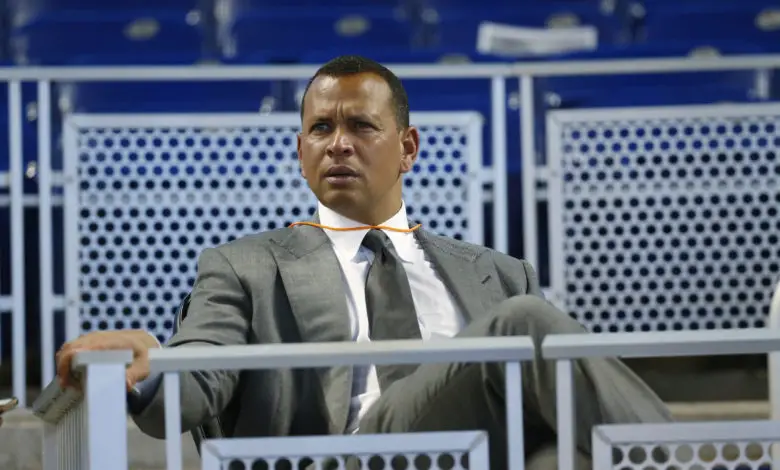
Latest Report of MLB’s Reduced ESPN Deal May Not Tell Whole Story
Paging Paul Harvey. A Friday report from Ken Rosenthal of The Athletic stated rather ominously that Major League Baseball is “bracing for a reduction in TV rights fees in pending ESPN deal,” but I think the rest of the story might be missing. Let’s first take a look at what Rosenthal wrote.
MLB’s previous deal with ESPN was an eight-year, $5.6 billion contract worth $700 million per year. The agreement under discussion would be for seven years and approximately $3.85 billion, reducing the average annual value to about $550 million per year, sources said.
Seems like a lot when you consider the $1.75 billion drop, though that figure loses some of its bite when you realize it’s just $150 million annually or $5 million per team per season. The decreased revenue becomes even less substantial when you understand that it a result of ESPN decreasing the number of games it carries, games that could then be sold to other broadcasters.
There’s no doubt the media landscape has changed dramatically over the last few years and will continue to do so, reducing the value of sports coverage through more traditional broadcast mediums. There are, however, plenty of opportunities to branch out into streaming services and various forms of over-the-top or on-demand models. For instance, the NFL recently had a game that was available only through Prime Video.
All of this is to say that MLB could probably recoup its annual losses from a reworked ESPN deal with relative ease. But that’s not even the most potentially misleading part of the headline. A New York Post article from back in December had already laid out the likelihood of ESPN scaling back its regular-season slate as part of a tentative agreement to obtain exclusive rights to the first round of MLB’s expanded playoffs.
According to that earlier report, ESPN would move from around 90 regular-season games to just 30-40 higher-profile contests. Of those remaining games, 25 would be their exclusive Sunday Night Baseball broadcasts with Alex Rodriguez remaining as the key voice. The Post also noted, though, that the AAV of the new deal would be less than what is currently in place.
That seems to be at odds with what we’ve seen from other recent rights renewals, like the $3.7 billion pact with Turner Sports through 2028 that represents a 65% increase over the previous deal. Back in November of 2018, FOX Sports re-upped with a $5.1 billion extension and DAZN landed a three-year, $300 million streaming rights deal. While all of those agreements include regular-season games, a huge portion of the total package is predicated on postseason rights fees.
According to data MLB sent to the players union during the shutdown, playoff broadcast rights account for $787 million annually: $370 million from FOX, $310 million from Turner, $27 million by ESPN, $30 million by MLB Network, and $50 million from international and other. The FOX deal is worth around $730 million in total, so half of it comes from heavy playoff coverage that includes the World Series, one of the two League Championship Series, and two of the four Division Series.
The data above may not include the increased Turner deal, which was first reported in mid-June — at least 10 days after the above figures were divulged — and wasn’t formally announced until September. Turner’s previous deal was for a reported $325 million in total, though, so it’s unlikely all but $15 million of that went toward the postseason. In any case, it’s reasonable to assume that ESPN landing a deal to carry the entire opening round would be worth a fair bit more than $27 million.
Ah, but there’s a catch: There are no expanded playoffs in place as things currently stand because the 2020 postseason was an aberration of the COVID-19 impact. That means the league and players would have to agree to implement the larger format again for ’21, a measure that would almost certainly lead to it being included as part of the next CBA. It also means the players are going to want a lot in return.
Since the broadcast rights for those additional games go straight to the league and owners, the players only see a share of them as a function of increasing average salaries. With all that in mind, doesn’t it behoove the owners to downplay any potential gains in their revenue streams while trying to negotiate with the union? A report that they’re bracing for big losses feels almost like a calculated measure at this point.
I’m not saying Rosenthal is complicit in this, mind you, only that it’s possible the information he’s sharing doesn’t have as much depth as it could. At the same time, the earlier reports about ESPN’s plans could be way off base and I could be dead wrong about the conclusions I’ve drawn as a result. As has been made quite clear here for a long time now, I’m very skeptical of MLB owners’ claims that their industry doesn’t make money.
No matter what happens with national deals, it’s easy to see that Marquee Sports Network isn’t delivering those wheelbarrows of cash to dump into Jed Hoyer’s baseball budget. The long and short of it is that, while the world of sports programming is changing and perhaps becoming less lucrative in the long run, the immediate reality appears to be that MLB is doing just fine.

